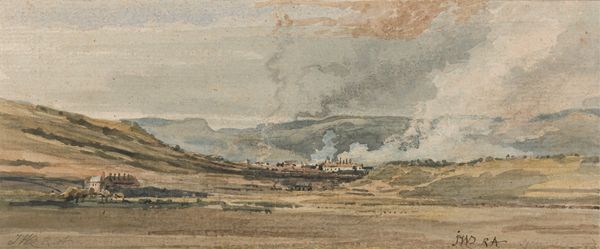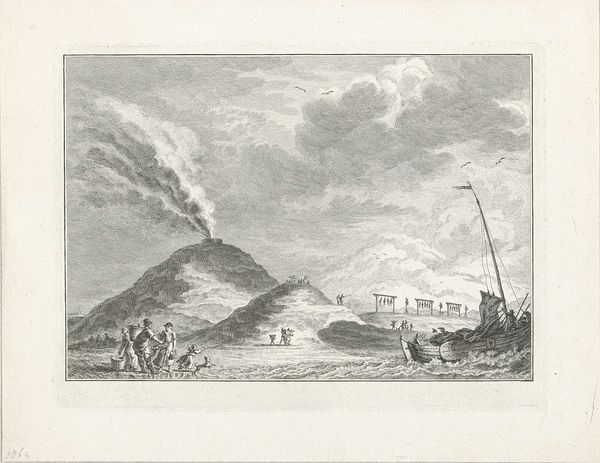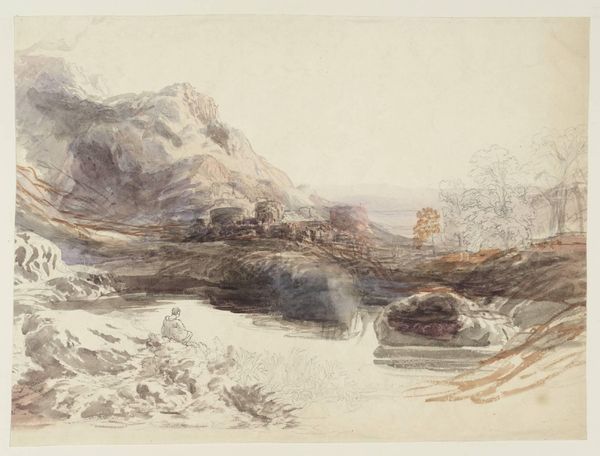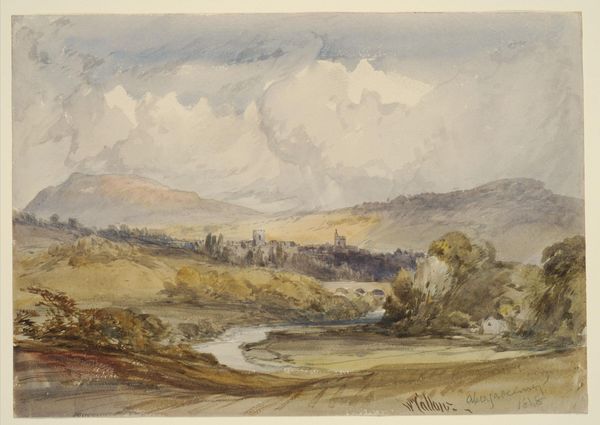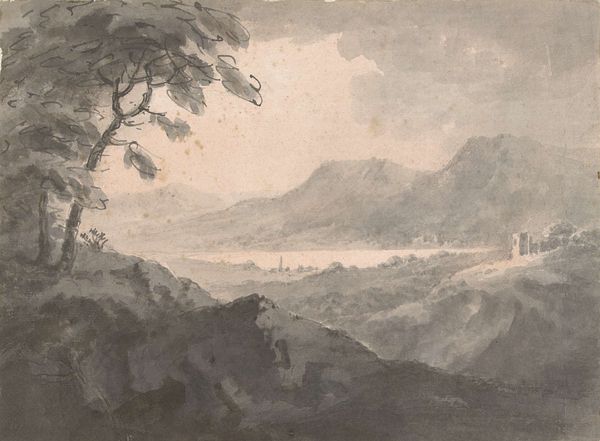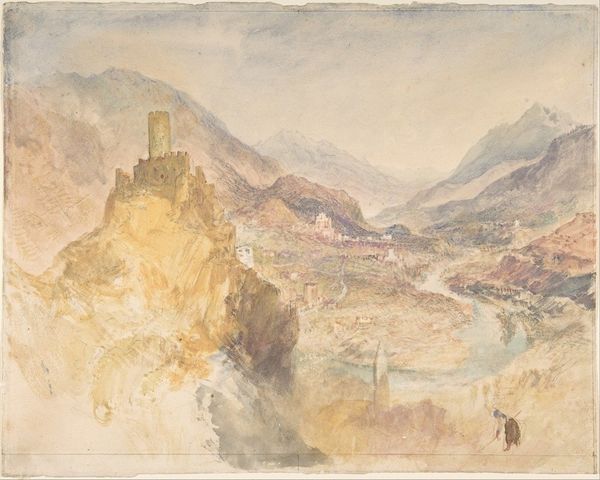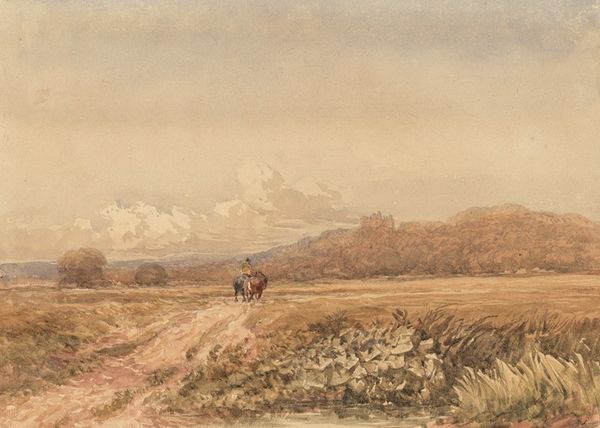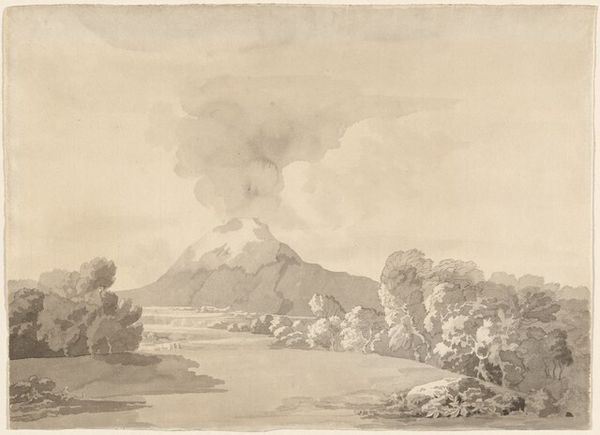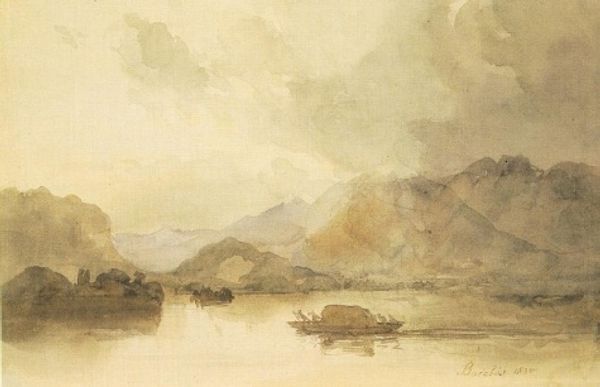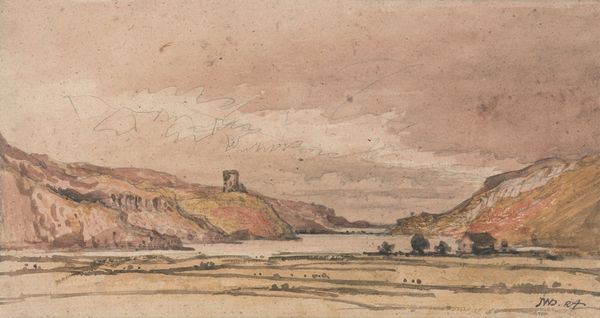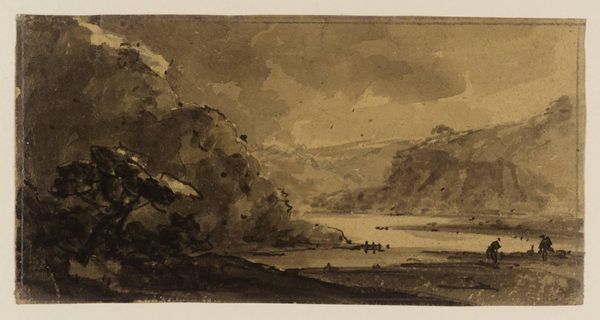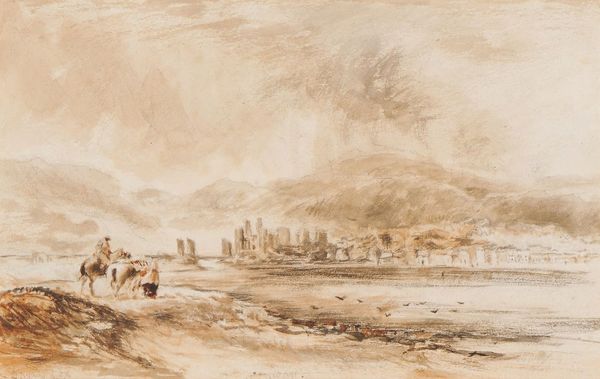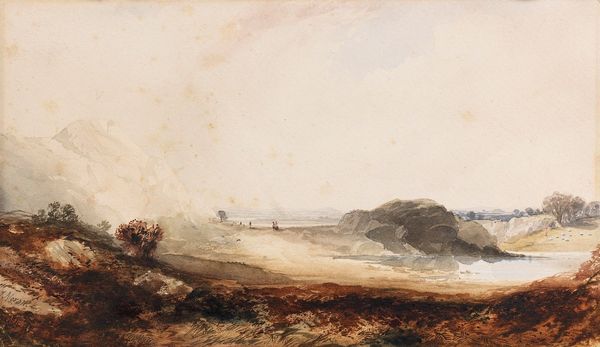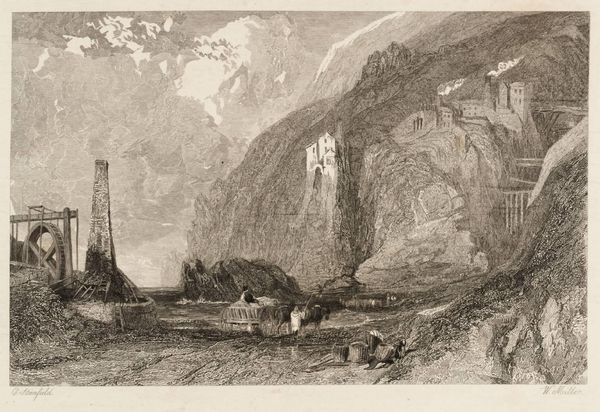
painting, plein-air, watercolor
#
painting
#
plein-air
#
landscape
#
oil painting
#
watercolor
#
rock
#
romanticism
#
watercolour illustration
#
genre-painting
Copyright: Public domain
Editor: Miklos Barabas created this watercolor, "Vesuvius Seen from the Island of Capri," in 1835. I'm struck by how this picturesque scene seems both calm and threatening. Vesuvius looms in the distance, a plume of smoke hinting at its power. What can you tell me about this landscape within its historical context? Curator: It’s interesting to consider how this work reflects the Romantic era's fascination with nature and the sublime, right? The volcano becomes a symbol not only of natural power, but also of historical events and human vulnerability. Consider Pompeii and Herculaneum, perpetually looming in the cultural imagination. How do you think Barabas engages with this pre-existing imagery? Editor: That's a great point about the cultural baggage of Vesuvius. It's not just a mountain; it's a constant reminder of history and the power of nature to erase civilizations. I guess the small figures in the foreground are a way to bring the sublime down to earth, reminding us of human life against this grand backdrop. Would this have had particular appeal for viewers at the time? Curator: Absolutely. The democratization of travel during the 19th century fostered an increased consumption of landscape imagery. Consider also the institutional context: many landscape artists gained patronage and status by capturing newly accessible tourist destinations like Capri. So, Barabas's piece isn't just a landscape, it’s participating in the formation of a certain cultural idea. It makes you think about what purpose landscape painting could serve beyond the aesthetic. Editor: That really broadens my understanding! I was mostly seeing the pretty colours, but now I see the ways this painting also comments on the society of its time. Curator: Exactly! It's not just about Vesuvius, it's about the gaze upon Vesuvius, and what that gaze signifies. Editor: It definitely gives me a richer appreciation for the image. Thanks for sharing your insights!
Comments
No comments
Be the first to comment and join the conversation on the ultimate creative platform.
